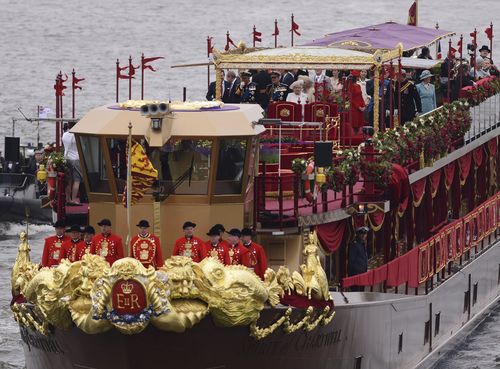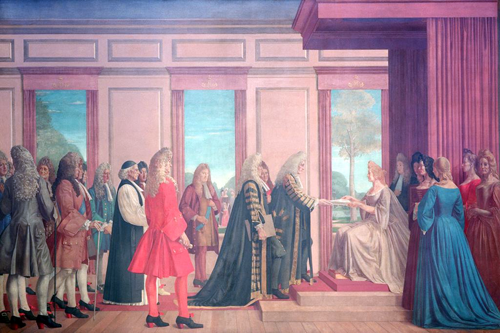 |
| Lady Thatcher: can you imagine this woman ever complaining she was offended by anything? |
I was reminded of this pearl of wisdom this morning during the unfortunate combination of breakfast and a video of Australian prime minister Julia Gillard on the news.
The highly unpopular and severely weakened Labor premier was screeching like a hysterical baboon at Liberal leader of the opposition Tony Abbott that she had been offindid by what she saw as his sexist behaviour toward women.
Examples of this 'sexism' included Mr Abbott once having stood next to a sign reading 'ditch the witch' and of 'cat-calling' across the dispatch box 'if the prime minister, politically speaking, wants to make an honest woman of herself...'
This was, she felt, sufficient to charge him with being 'sexist' and 'misogynist' on the grounds neither of those terms could have been used against a male prime minister. But it gets worse. She also presumed to be offindid on behalf of every woman in Australia that Mr Abbott once described abortion as 'the easy way out'.
I understand Australians have something of a reputation for being 'uncouth' but, as my libertarian friends never tire of pointing out, offence may be taken but it cannot be given. With that in mind, let's review the accusations Miss Gillard is levelling against Mr Abbott.
In the first instance, she is claiming Mr Abbott is being sexist and misogynist because he is using gender-exclusive terms in attacking her, such as 'witch'.
This is an important point because it is not that Mr Abbott is being deliberately rude to her that the prime minister finds so offinsive but that he is doing so in a way which identifies her as a woman.
But, while it is true no male prime minister is likely to be called a witch, Miss Gillard is discounting the fact she is herself unlikely to be attacked with the armoury of generally male-exclusive expletives so favoured by the antipodean lexicon such as 'dickhead', 'wanker' or 'bastard'. All these words are designed to be offinsive in context but not because they are gender-specific - it is merely incidental that most expletives happen to be so.
In this light, it is difficult to see how these comments could convincingly be described as sexist, if we take this to mean discrimination against women. Nor, for that matter, under the Australian Macquarie Dictionary's revised definition of misogyny as 'an entrenched prejudice against women'.
Mr Abbott's opinion that abortion is 'the easy way out', too, is just that - an opinion. Certainly, with the coldness many advocates of abortion refer to it as 'destroying a parasite', one would be forgiven for holding such a view. But that is not the point. Attitudes on both sides of the fence are neither objectively nor universally offinsive to anyone, least of all the entire female population of a country.
So why do it? The real trouble here is Miss Gillard, like so many socialist politicians, is attempting to disguise her weakness and failings as prime minister beneath the cloak of victimisation. Unfortunately for her it serves only to accentuate them.
Take Margaret Thatcher. She could easily be described as one of the most hated politicians in modern history and was, in office, subjected to some of the most grotesque insults from Labourites, trade unionists and members of her own party. 'That bloody woman' and 'the grocer's daughter' were among the tamest and she is universally identified as a 'bitch' by almost everyone on the left even at the age of 87.
But did she ever complain? Did she ever winge about things being offinsive or even acknowledge the abuse hurled at her? No. Not a bit of it. She just got on with the job. As for being treated differently because she was a woman, rather than cry about it, she mercilessly exploited it. As Douglas Hurd once said, 'Some people find it difficult to argue with a woman prime minister, and shrivel up.'
As someone who is neither powerful nor, arguably, much of a lady - Miss Gillard could learn a lot from Lady Thatcher. She might even find her someone she can do business with. 'When I'm out of politics I'm going to run a business,' the great lady once said. 'It'll be called rent-a-spine.' Quite.






